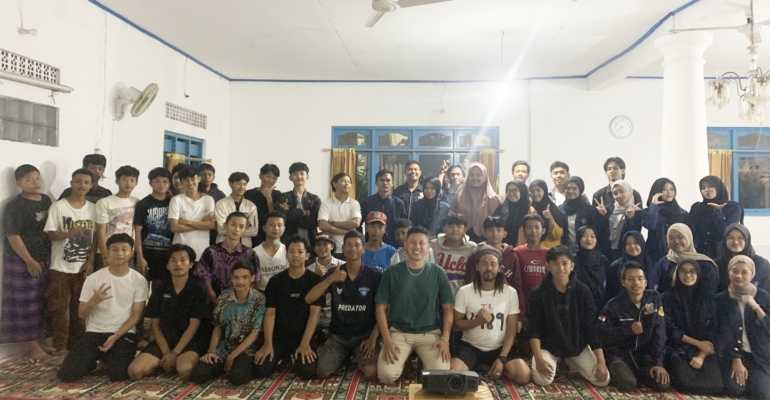Turning Waste into Feed, PPKO BEM FPIK IPB Introduces Maggot Cultivation of Alternative Fish Feed in Ciampea Udik Village

The Student Organisation Capacity Strengthening Program Team (PPK Ormawa) Student Executive Board of the Faculty of Fisheries and Marine Sciences (BEM FPIK) IPB University again held a socialisation activity in Ciampea Udik Village (7/14) in order to support the implementation of environmentally friendly and sustainable technology in fisheries cultivation.
This socialisation introduces maggot cultivation techniques, larvae from black soldier fly (Hermetia illucens), which have high nutritional content and can grow by utilising organic waste such as food waste and agricultural waste. The use of maggot as fish feed is expected to reduce production costs and reduce organic waste in the environment.
Socialisation was attended by 40 youths from Ciampea Udik village. They get an explanation about how to cultivate maggots, starting from the selection of types of flies, cultivation techniques, to how to process maggots into fish feed. In addition, participants are also invited to see directly the dried maggot product which can be used as tilapia feed.
The Chairman of the PPK Ormawa of BEM FPIK at IPB University team, Faishal Yusuf, explained that maggot cultivation is an economical and sustainable fish feed solution. “With maggot cultivation, we can produce a high quality fish feed while reducing organic waste. This is an important step towards a more environmentally friendly fisheries cultivation,” said Faishal.
Faishal said, the PPK Ormawa of BEM FPIK at IPB University team will continue to assist the people of Ciampea Udik Village in the application of this technology. Faisal and his team also plan to hold advanced training and periodic monitoring to ensure the maggot cultivation can run well. “It is hoped that the community can develop a tilapia farming business that is more efficient, economical, and environmentally friendly,” said Faishal.
One of the youths, Regal, expressed his excitement at the information provided. “We are very helped by this socialisation. Very useful, hopefully we can immediately implement it for our fish farming business,” he said. (*/Rz) (IAAS/IAN)



